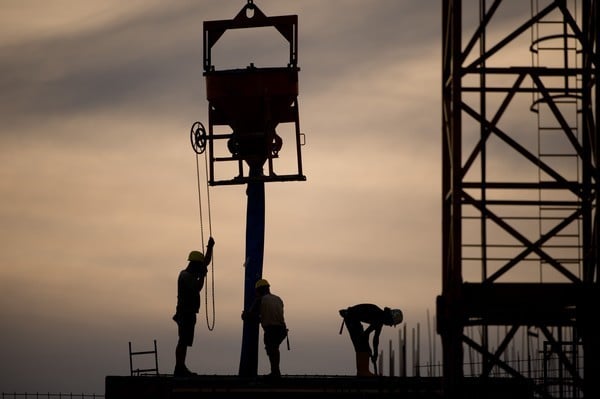The ZEW economic institute's monthly barometer tumbled to -8.2 points, a steep decline from last month's 5.1 points, adding to concerns that Germany's robust economy could be headed for a slowdown.
“The reasons for this downturn in expectations can mainly be found in the international trade conflict with the United States and the current situation in the Syrian war,” ZEW chief Achim Wambach said in a statement.
The drop in investor morale was worse than expected, with analysts polled by Factset predicting a reading of -1.5 points.
A breakdown of the monthly ZEW poll, which surveyed some 200 analysts and investors, showed their assessment both of the current economic situation in Germany and the outlook for the coming months declined.
The last time confidence among financial players fell into the red was in July 2016, shortly after Britain's shock vote to quit the European Union.
April's reading is also the worst since the eurozone debt crisis sent the ZEW index plunging to -15.7 points in November 2012.
It comes after US President Donald Trump fanned fears of a trade war between the world's top two economies after threatening punitive duties on billions of dollars worth of Chinese imports, prompting vows from Beijing to respond in kind.
Capital Economics analyst Jessica Hinds said “the escalation in protectionist rhetoric” had worried Germany's export-oriented firms.
But she said a slew of “disappointing official data” out of Germany was also to blame for the bleaker mood, suggesting that Europe's powerhouse lost some momentum at the start of the year.
Confidence among German businesses fell back in March, the influential Ifo survey showed last month, while the latest industrial orders and production figures were underwhelming.
But Hinds stressed there was no reason to be overly concerned about the German economy.
“While Germany is vulnerable to increased protectionism, at this stage we doubt that an all-out trade war will materialise,” she said.
“Overall, then, we expect only a modest slowdown and see the German economy expanding by 2.5 percent this year,” she added.



 Please whitelist us to continue reading.
Please whitelist us to continue reading.
Member comments